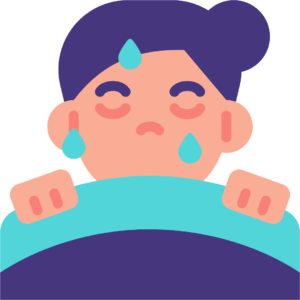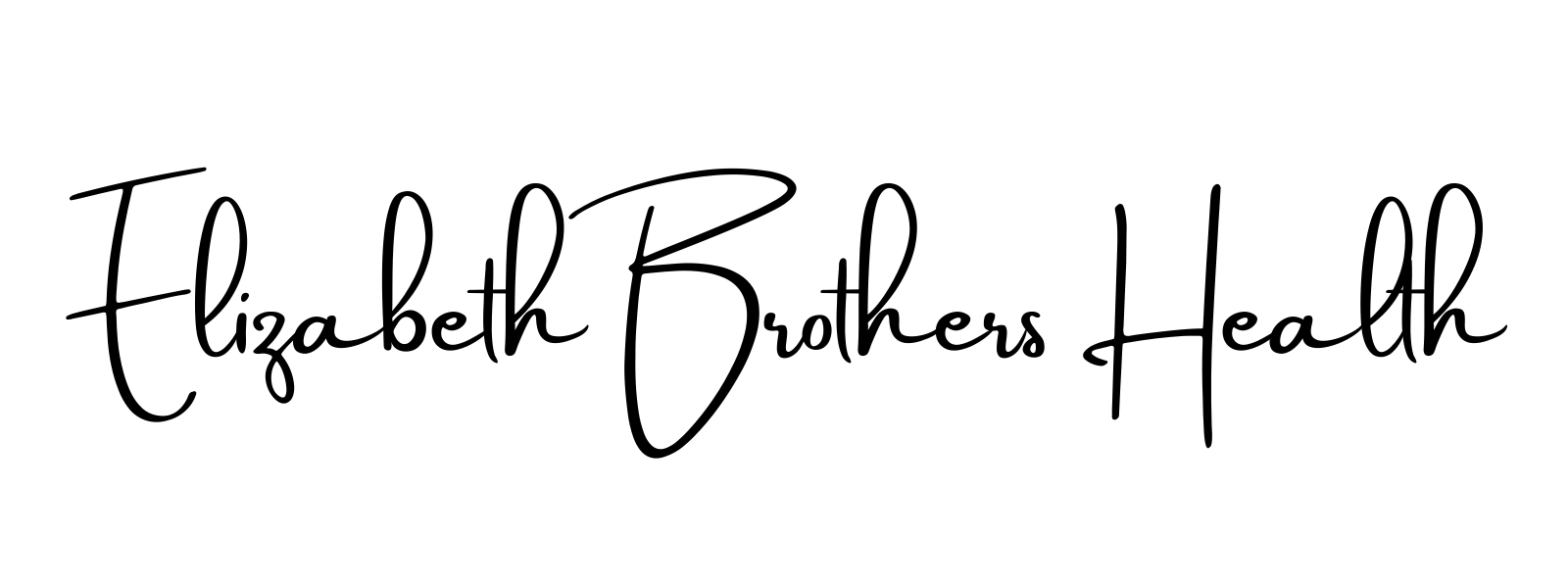Night sweats. Hot flashes.
The words we associate with menopause.
“Ha! I’m nowhere near menopause” you might say. And you’re probably right.
But here’s why I want you to think about night sweats right now.
Menopause hits most women sometime around their 50’s, but it can happen in your late 40’s. And perimenopause, this lovely little transition period, can last for 10 years before menopause. So it’s possible you might start seeing symptoms of perimenopause (including night sweats) in your late 30’s.
Night sweats can really make sleep difficult. And the best treatment is prevention.
What causes night sweats?
Night sweats happen when your temperature regulation goes out of whack at night. And hot flashes are a similar mechanism, just during the day. But they happen because of a drop in estrogen/progesterone during menopause/perimenopause.
Night sweats can be very problematic because they are one of the leading causes of sleep disruption in women, leaving you even more exhausted, more drained, more irritable and cranky, and less able to keep up with everything you need to do.
What aggravates night sweats?
This list can vary greatly depending on each person, but some of the triggers for night sweats include:
- Lack of exercise
- Stress & exhaustion
- Anxiety
- Food and drinks – these are some of the most common food and drink triggers. There is definitely some individuality to these, but some of them (like alcohol) can be very triggering for most women.
- Spicy food
- Hot drinks
- Alcohol
- Caffeine
- Chocolate
- Sugar
- Red meat
- Dairy
- Smoking
- Very hot weather
- Maternal history
- Some medications
- Low thyroid function – a.k.a. hypothyroidism

How do you deal with them?
A lot of what I talk about, the foundational things we need to implement to improve our sleep, are going to help improve night sweats. The list below includes those, but also some that are specific to perimenopause/menopause:
- Regular exercise
- Good sleep
- Great nutrition
- Cruciferous vegetables – these are great for their fiber, but also I3C (a compound that helps with proper estrogen metabolism). Aim for at least one servings of these each day!
- Brussels sprouts, broccoli, cauliflower, kale, etc.
- Limit alcohol and caffeine
- Determine your individual food triggers (such as sugar, chocolate, wheat, dairy, etc.)
- Phytoestrogens – these are lovely little compounds that help modulate estrogen in the body. So if our estrogen signals are too high, they turn them down a little bit. And if the signal is too low, they turn them up a little bit.
- 2 Tbsp of ground flax seed every day (grind this fresh! The healthy fats in flax seeds can go rotten very quickly)
- Soy! Soy milk, tempeh, tofu are great. Or 20-60 g of isolated soy protein every day for 6-12 weeks can help reduce night sweats.
- Eat enough fiber – helps to keep you “regular” and for proper hormone metabolism
- Vitamin B complex – B6 in particular is an excellent vitamin to support stress management in the body
- Stress reduction
- Deep breathing
- Mindfulness activities
- Journaling
- Dancing
- Laughing
- Spending time with friends
- Avoid xenoestrogens – these are the compounds in the environment that look like estrogens in our body, but aren’t. They can really throw our hormones completely out of sync. You’ll find xenoestrogens in:
- Plastics – store food in glass when possible, drink from glass, and if you do store foods in plastic, try not to heat or freeze it
- BPA – definitely avoid plastics with BPA in them
- Pesticides
- Cosmetics – lotions, shampoos, makeup, etc. EWG’s Skin Deep database is an excellent resource to check out the cosmetics that you use to make sure you’re using the cleanest ones. You can find that here!
- Check your thyroid levels – talk to your doctor about this
- Hormone replacement therapy (HRT) – if you do want to investigate HRT, talk to your doctor about that sooner than later. It’s better to start HRT before you’re fully into menopause and your hormones have dropped off considerably.
Relax…
Telling me to relax usually has the opposite effect, but hear me out on this point. In Chinese Medicine, there are two energies – Yin and Yang. Yang energy is very hot, high, fast, masculine, productive, etc. Yin is exactly the opposite – very slow, low, cold, feminine, reflective, etc.
Our requirements for Yin and Yang change as we go through life. Babies and young kids are very Yang. Have you ever tried to move as much as a baby or a toddler does? It’s exhausting! But then at the other end of life, people in their 80’s, 90’s, and even later tend to move less and less.
Menopause is a time in your life when the Yin requirement starts to be greater than the Yang. And relaxation is a key part of that. And since our world is very Yang, you’ll need to actively build in time to slow down, rush less, reflect more, and just generally enjoy more relaxation. You can do this on a daily basis (schedule in some relaxation time), and even in your exercise. More Yin type exercises are helpful – Yin yoga, Qi Gong, Tai Chi, stretching, walking, etc.
I hope you find this resource helpful. Whether or not you’re in perimenopause yet, if you’re a busy mom currently struggling with sleep, reach out. Feel free to book a sleep assessment call. And let’s get your sleep sorted out, before night sweats come in to add that extra layer of challenge.
